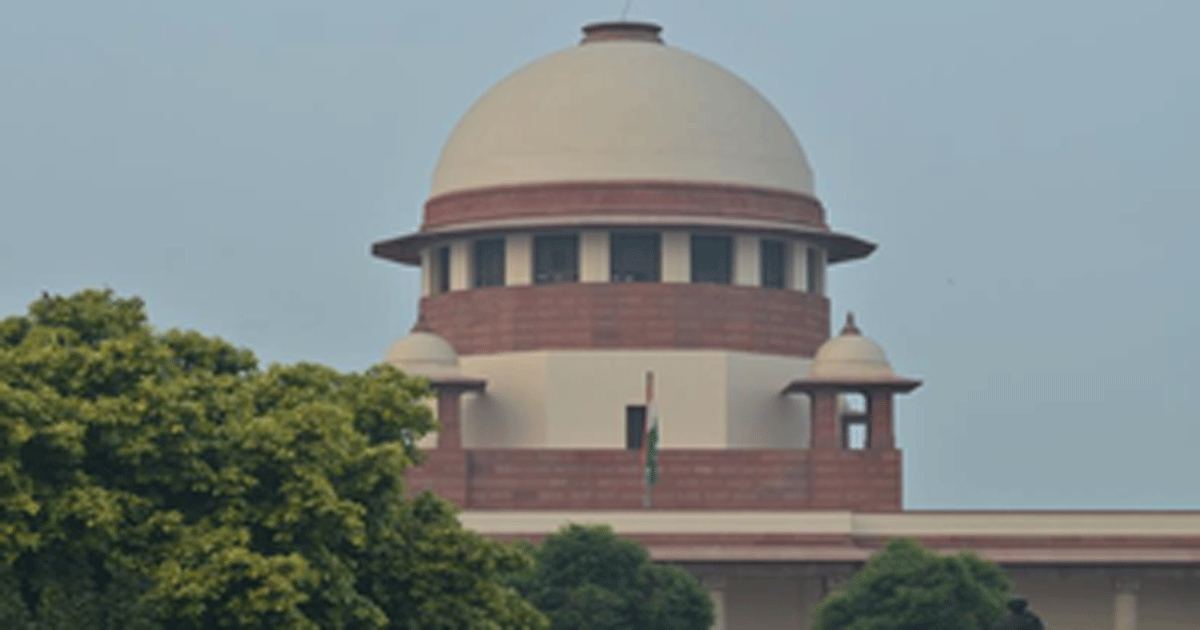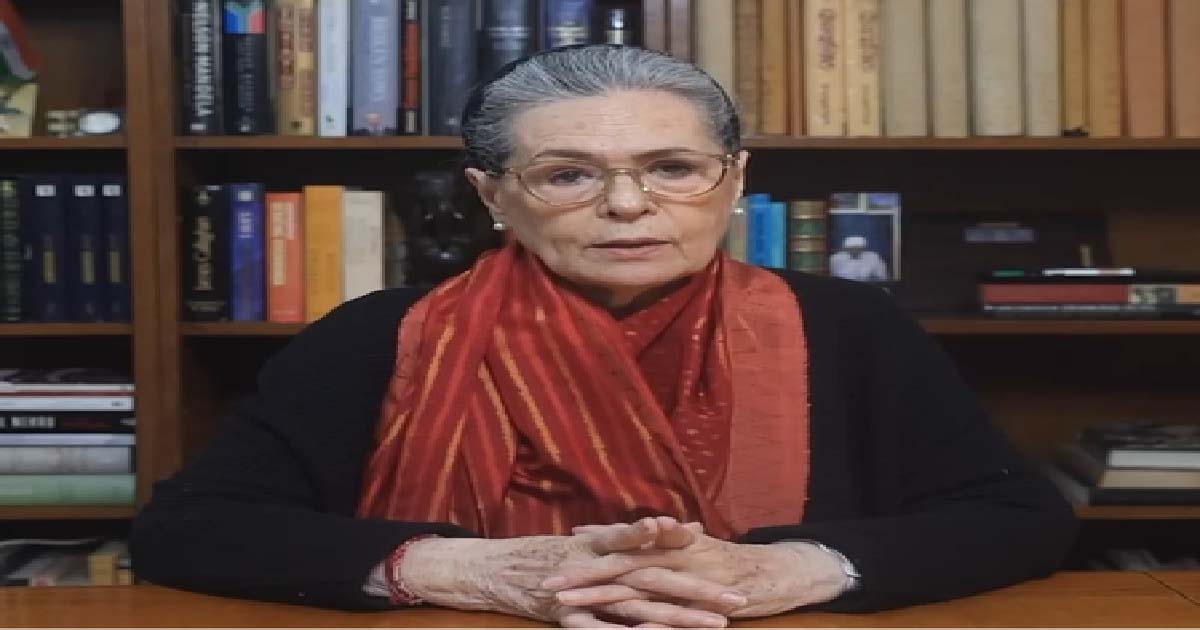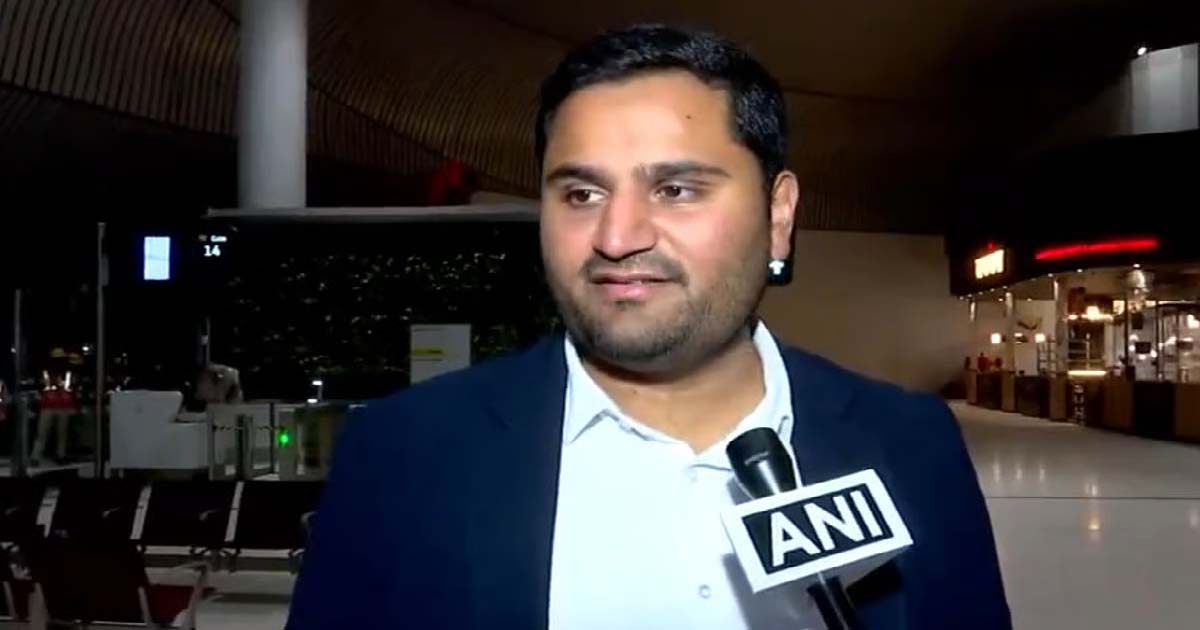National News
Places of Worship Act: Mathura mosque committee urges SC to close Centre’s right to file counter affidavit

New Delhi, Jan 21: In a fresh application filed before the Supreme Court, the Committee of Management of Mathura’s Shahi Masjid Eidgah has pleaded that the right of the Centre to file its reply to the petitions challenging the validity of the Places of Worship Act, 1991 should be closed.
The plea said that in an order passed on December 12, 2024, the apex court noticed that the Union government had not filed its reply to the petitions challenging the 1991 Act for over three years and directed that a common counter affidavit be filed by the Centre within four weeks.
The mosque committee said that the Union of India is “deliberately” not filing its counter affidavit with the intention to delay the hearing, and thereby, obstructing those who are opposing the challenge to the Places of Worship (Special Provisions) Act, 1991 in filing their respective written submissions, as the stand of the Centre would have a bearing on the same.
The Shahi Masjid Eidgah’s application contended that since the Supreme Court has fixed the date of hearing of the batch of petition as February 17, “it would be in the interest of justice if the right of the Union of India to file its counter affidavit/ reply/pleadings/submissions is closed”.
In March 2021, a Bench headed by then Chief Justice of India (CJI) S.A. Bobde sought the Centre’s response to the plea filed by advocate Ashwini Upadhyay challenging the validity of certain provisions of the law, prohibiting the filing of a lawsuit to reclaim a place of worship or seek a change in its character from what prevailed on August 15, 1947.
The plea said, “The 1991 Act was enacted in the garb of ‘Public order’, which is a State subject (Schedule-7, List-II, Entry-1) and ‘places of pilgrimages within India’ is also State subject (Schedule-7, List-II, Entry-7). So, the Centre can’t enact the Law.
“Moreover, Article 13(2) prohibits the State from making a law to take away fundamental rights but the 1991 Act takes away the rights of Hindus, Jains, Buddhists, and Sikhs, to restore their ‘places of worship and pilgrimages’, destroyed by barbaric invaders.”
It further added, “The Act excludes the birthplace of Lord Rama but includes the birthplace of Lord Krishna, though both are incarnations of Lord Vishnu, the creator and equally worshipped throughout the world, hence it is arbitrary.”
In an interim order passed on December 12, 2024, the CJI Sanjiv Khanna-led Special Bench had ordered that no fresh suits would be registered under the Places of Worship Act in the country, and in the pending cases, no final or effective orders would be passed till further orders.
The Special Bench, also comprising Justices Sanjay Kumar and K.V. Viswanathan, had asked the Union government to file within four weeks its reply to the batch of petitions challenging the validity of the Places of Worship Act (Special Provisions), 1991.
In an intervention application filed earlier on December 11, the Committee of Management of Mathura’s Shahi Masjid Eidgah, had said that the 1991 law, prohibiting the alteration of religious places of worship as they stood on August 15, 1945, was enacted by Parliament in the interest of the country’s progress, which has stood the test of time for more than 33 years.
It added that Parliament had enacted the 1991 Act, which has stood the test of time for more than 33 years and the petitioners have chosen to challenge the enactment belatedly, after 29 years.
The application said that the mosque committee is party to 17 different suits being tried by the Allahabad High Court, where the plaintiffs have staked a claim over the entire parcel of land over which the Shahi Masjid Eidgah has been built, and have further sought the removal of the mosque structure from the said land, claiming the same to have been built over Krishna Janam Sthan.
“It would be in the interest of justice if the applicant (mosque committee) is allowed to intervene and assist this Hon’ble Court in the adjudication of the issues (relating to the validity of Places of Worship Act, 1991),” the application had said.
National News
‘Bulldozer on MGNREGA’: Sonia Gandhi attacks Modi govt over G RAM G Bill

New Delhi, Dec 20: Congress Parliamentary Party (CPP) chairperson Sonia Gandhi on Saturday mounted a sharp attack on the PM Narendra Modi-led government, accusing it of systematically running a “bulldozer” over the Mahatma Gandhi National Rural Employment Guarantee Act (MGNREGA) and undermining the rights of rural poor, farmers and landless workers, terming it an “assault on rural livelihoods”.
This comes two days after the Parliament passed the VB-G RAM G Bill 2025, which escalated into a major political slugfest between the government and the opposition.
In a video message shared by the Congress on X, Gandhi recalled the passage of the landmark employment guarantee law nearly two decades ago during the tenure of former Prime Minister Dr Manmohan Singh.
She said MGNREGA was passed with broad consensus in Parliament and proved to be a “revolutionary step” that provided livelihood security to crores of rural families, particularly the most deprived and marginalised.
“The law stopped distress migration by ensuring employment in one’s own village, strengthened gram panchayats and gave a legal right to work,” Gandhi said, adding that the scheme embodied Mahatma Gandhi’s vision of Gram Swaraj.
She noted that MGNREGA acted as a lifeline for the poor during the COVID-19 pandemic.
However, the Congress leader alleged that over the past 11 years, the Modi government had made repeated attempts to dilute the scheme by ignoring the interests of the rural unemployed and poor.
She expressed “deep anguish” over what she described as recent unilateral changes to the programme.
“Without consultation, discussion or taking the opposition into confidence, the government has altered the very structure of MGNREGA. Even Mahatma Gandhi’s name has been removed,” Sonia Gandhi claimed.
She warned that decisions on who gets work, how much employment is provided and where it is offered are now being taken “from Delhi, far removed from ground realities”.
Emphasising that MGNREGA was never a party-specific initiative, Gandhi said the Congress may have played a key role in bringing the law, but it was always meant to serve national and public interest.
“By weakening this law, the government has attacked the rights of crores of farmers, labourers and landless rural poor,” she said.
Gandhi asserted that the Congress was fully prepared to resist what she termed an assault on rural livelihoods. “I fought for the employment guarantee law 20 years ago, and I remain committed to fighting this ‘black law’ today,” she said, adding that Congress leaders and workers stood firmly with the people.
Business
38 Railways projects worth Rs 89,780 crore sanctioned in Maharashtra: Centre

New Delhi, Dec 20: A total of 38 railway projects (11 new lines, 2 gauge conversion and 25 doubling) of a total length of 5,098 kms and costing Rs 89,780 crore have been sanctioned in Maharashtra (as on April 1, 2025), the government said on Saturday.
During the last three fiscals — 2022-23, 2023-24, 2024-25 and the current financial year 2025-26 — 98 surveys (29 New Line, 2 Gauge Conversion and 67 Doubling) of total length 8,603 km falling fully/partly in the state of Maharashtra, have been sanctioned, it said.
“Further, construction works on the flagship High-Speed Bullet Train project have gathered momentum in Maharashtra. Now 100 per cent of land acquisition has been completed. Works on bridges, aqueducts, etc. have been taken up,” the Railways Ministry said in a statement.
In addition, platform extension work at 34 stations to accommodate 15-car EMUs has been taken up.
To improve the capacity of the rail network in the Mumbai suburban area, the Mumbai Urban Transport Project (MUTP)-II costing Rs 8,087 crore, MUTP-III costing Rs 10,947 crore, and MUTP-IIIA costing Rs 33,690 crore have been sanctioned.
To enhance passenger carrying capacity, 238 rakes of 12 cars each with doors have been sanctioned under MUTP-III and IIIA at a cost of Rs 19,293 crore. The process for the procurement of these rakes has been taken up.
With Western DFC also passing through Maharashtra, as about 178 route km of it or about 12 per cent of the overall route length, falling in the state, the ministry said that “about 76 km of this project from New Gholvad to New Vaitarna in Maharashtra has already been commissioned. Balance works have been taken up. Connectivity of WDFC to JNPT will boost the capacity to handle cargo and container traffic from the port to Delhi NCR”.
Presently, about 120 originating Mail/Express trains and about 3,200 suburban trains are handled daily in the Mumbai area.
National News
‘We Will Be Adding 3 More Terminals’: Jeet Adani On Navi Mumbai Airport

Mumbai: As Navi Mumbai International Airport (NMIA) is set to begin commercial operations, Jeet Adani, the Director at Adani Airports Holdings Limited, on Friday shared the upcoming plans in terms of adding more terminals, runways and connectivity modes.
Speaking to Media, Jeet Adani said, “We’ll have the first terminal operational. The terminal has a capacity of about 20 million passengers, and the first southern runway is going to be operational. As we grow in terms of traffic, we will be adding three more terminals, another runway, cross-field taxiways, metro connectivity, two kinds of metro connectivity, one towards Mumbai, one towards Panvel, water taxi and helipad.”
“So every form of transportation will be connected as a true multi-modal hub should be. This will keep going on for the next 15 years. So we see between 2038-2040, that time period is where we’ll see the entire Navi Mumbai fully built out,” he added.
Prime Minister Narendra Modi on October 8 inaugurated the Navi Mumbai International Airport (NMIA), one of India’s most ambitious infrastructure projects and a defining milestone in the nation’s aviation journey.
Speaking on the occasion, the Prime Minister said that Mumbai’s long wait was over as the city had now received its second international airport. He added that the Navi Mumbai International Airport would play a major role in establishing the region as Asia’s biggest connectivity hub.
NMIA has been developed as a public-private partnership (PPP) between Mumbai International Airport Limited (MIAL), a subsidiary of Adani Airport Holdings Limited (AAHL), and the City and Industrial Development Corporation (CIDCO).
The project represents a major stride in India’s infrastructure-building vision, reflecting the Government’s agenda of Viksit Bharat 2047.
-

 Crime3 years ago
Crime3 years agoClass 10 student jumps to death in Jaipur
-

 Maharashtra1 year ago
Maharashtra1 year agoMumbai Local Train Update: Central Railway’s New Timetable Comes Into Effect; Check Full List Of Revised Timings & Stations
-

 Maharashtra1 year ago
Maharashtra1 year agoMumbai To Go Toll-Free Tonight! Maharashtra Govt Announces Complete Toll Waiver For Light Motor Vehicles At All 5 Entry Points Of City
-

 Maharashtra1 year ago
Maharashtra1 year agoFalse photo of Imtiaz Jaleel’s rally, exposing the fooling conspiracy
-

 National News1 year ago
National News1 year agoMinistry of Railways rolls out Special Drive 4.0 with focus on digitisation, cleanliness, inclusiveness and grievance redressal
-

 Maharashtra1 year ago
Maharashtra1 year agoMaharashtra Elections 2024: Mumbai Metro & BEST Services Extended Till Midnight On Voting Day
-

 National News1 year ago
National News1 year agoJ&K: 4 Jawans Killed, 28 Injured After Bus Carrying BSF Personnel For Poll Duty Falls Into Gorge In Budgam; Terrifying Visuals Surface
-

 Crime1 year ago
Crime1 year agoBaba Siddique Murder: Mumbai Police Unable To Get Lawrence Bishnoi Custody Due To Home Ministry Order, Says Report












